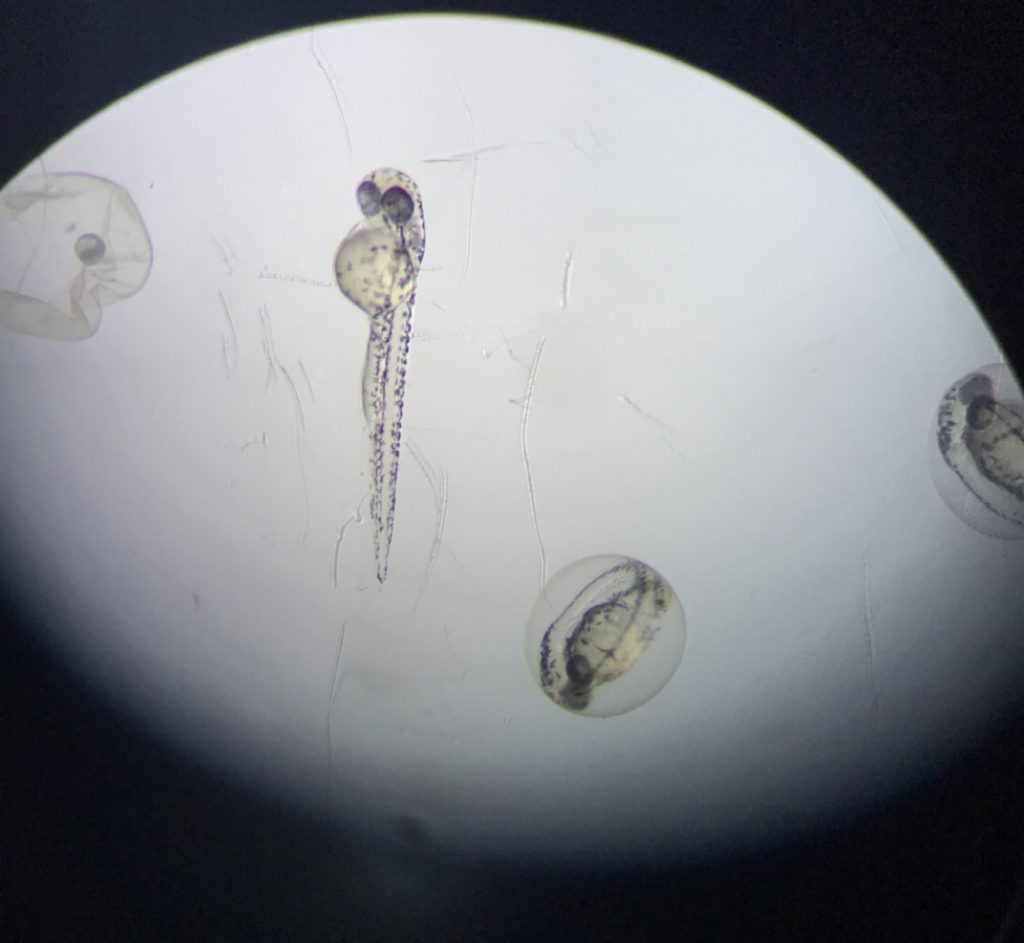The Undergraduate Research Program That Will Keep You Intrigued
By Wumni Awelewa
Hello all! My name is Wumni Awelewa and I’m a rising sophomore at Williams College. At my home campus, I work as a research assistant studying wetland mitigation, while actively participating in clubs such as The Black Student Union and Sisterhood. This summer I have the amazing opportunity to join nine of my brilliant peers as the first cohort of our ten week REU ANEW program. What makes this program so interesting and fulfilling for me is the new friends I am making and the experiences I am able to gain in my lab.
My project focuses on both investigating the narrative surrounding toxins and zebrafish, as well as tackling  unanswered questions pertaining to these topics. I am studying how nanoplastics in the presence of mitochondrial toxins affect the behavior of zebrafish. Because zebrafish are known model organisms for human health, our results can offer insights on the possible effects of nanoplastics on not only aquatic organisms, but also potentially human health.
unanswered questions pertaining to these topics. I am studying how nanoplastics in the presence of mitochondrial toxins affect the behavior of zebrafish. Because zebrafish are known model organisms for human health, our results can offer insights on the possible effects of nanoplastics on not only aquatic organisms, but also potentially human health.
As someone just starting their undergraduate career, this project is equipping me with skills I previously did not possess. I am learning about the nature of the seven toxins we work with, learning how to code and analyze data in R studio, and working with DanioVision, a machine that tracks zebrafish movement. I really appreciate the hands on experience. Although my peers and I are focusing on different projects ranging from climate change to potato viruses, we are all united under the One Health cause. Through our projects, we are able to learn about the ways in which our research affects, or could affect human health.
My lab environment and team are amazing! We are able to organize and analyze our data and still go out for ice cream. Needless to say, I’m not just in the lab to work and learn all day. This summer, I am making friends, learning from my mistakes, asking questions, assisting with other projects in the lab, and so on. This program also provides us with weekly professional development sessions where we learn more about career pathways, science communication, and building connections with mentors. Going into my sophomore year of college, I know I am prepared to utilize the skills I will gain during this program in my lab and future projects. Although my project is only ten weeks long, I know that it will continue to have an impact in the world of one health, and the skills, mentors, and friends I gain this summer will last me a lifetime.
This blog post was authored by a student participating in the Research Experience for Undergraduates – Accelerating New Environmental Workskills program, which is led by faculty in the Initiative for One Health and the Environmental and funded by the National Science Foundation. Information in this post does not represent the University of Maine or its faculty.
